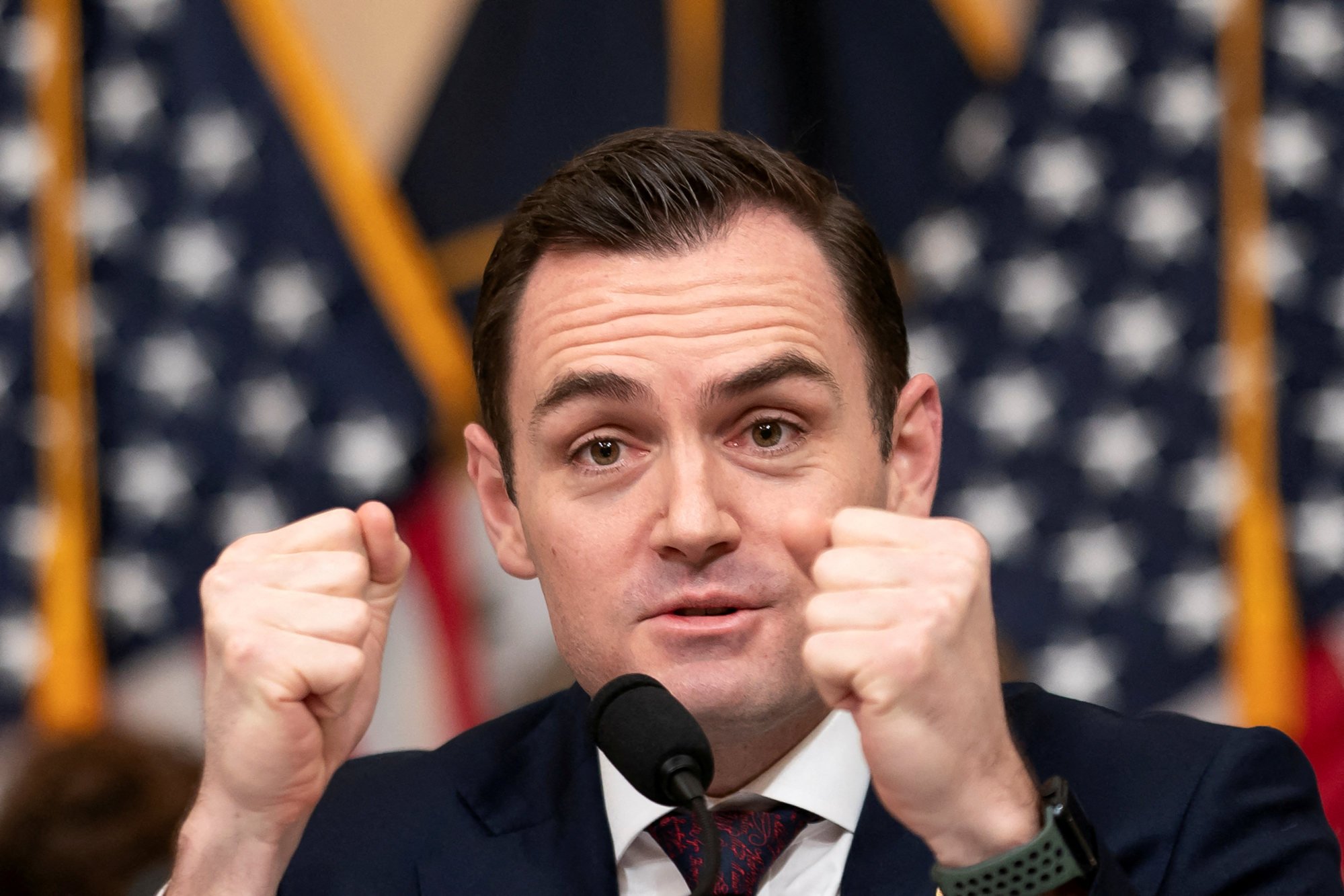
US firms MSCI, BlackRock ‘funnelled’ billions to Chinese companies accused of human rights abuses: panel
- World’s foremost index provider alone channelled US$3.7 billion into entities boosting People’s Liberation Army, says congressional report
- Named mainland companies include state-owned Aviation Industry Corporation of China, BGI Group and Qihoo 360
The committee’s leaders – retiring Republican congressman Mike Gallagher of Wisconsin and Democratic congressman Raja Krishnamoorthi of Illinois – did not issue their own statements on the findings.
But a press release attributed to the panel said the report examined “the broader US financial industry” while lamenting that the activities it documented were “not illegal” under existing American laws.

By listing a red-flagged company, index providers “effectively give that company a stamp of approval, signalling the company is investible and its securities hold a certain value”, the report said. Indexes measure the stock market performance of key companies in various areas.
And once a company is listed in the index offerings, companies such as BlackRock channel the investments.
“In some cases, they do not mention them at all,” it added.
US must treat China more like a cold-war opponent: Republican policymakers
Noting that such activities by financial institutions were not illegal, the committee urged Congress to act and prevent Americans’ “life savings” from funding the Chinese Communist Party.
“Congress must act to restrict US investment in entities tied, directly or indirectly, to the [Chinese military], critical technology sectors or forced labour and genocide,” it said.
BlackRock in a statement said that despite the company’s fully cooperating with the committee for more than eight months, the report included “misleading assertions about index funds, including that they are ‘funnelling billions of dollars’ to these entities”.
“The committee and its report confirm BlackRock complies with applicable US laws, this matter affects the entire asset-management industry and that Congress and the [Biden] administration must work together to create clear rules of the road for US investors,” its statement read.
MSCI in a statement described an index as “simply a mathematical calculation of the performance of the market” and that it “does not and cannot channel investments, and MSCI does not manage or recommend investments in any country or company”.
US executive order to keep Americans’ personal data from ‘countries of concern’
The company also said it was “pleased” that the panel acknowledged there had been no legal or regulatory violations. It vowed to “assess applicable changes” to its indexes if Congress or other government bodies were to expand restrictions on investment in China as recommended in the report.
Liu Pengyu, spokesman for China’s embassy in Washington, criticised the report on Thursday, singling out the US’s “abuse and generalisation of the concept of national security, politicisation and weaponisation of economic and trade issues, and setting up artificial obstacles to normal economic and trade cooperation”.
“The US has said many times that it does not seek to decouple from China, but what the US has done is actually ‘decoupling and severing the chains’ with China, undermining two-way investment,” said Liu, asking Washington to “match words with deeds”.
Beijing would be closely following “relevant developments and resolutely safeguard its own interests”, he added.

